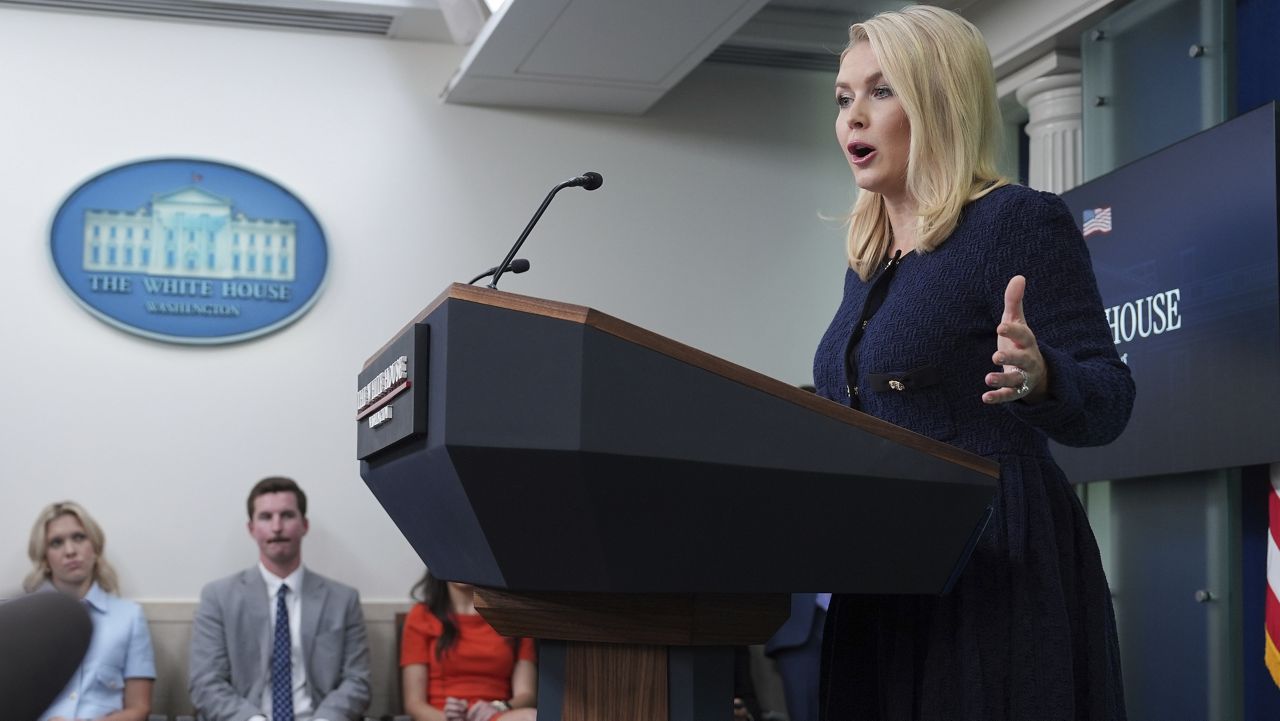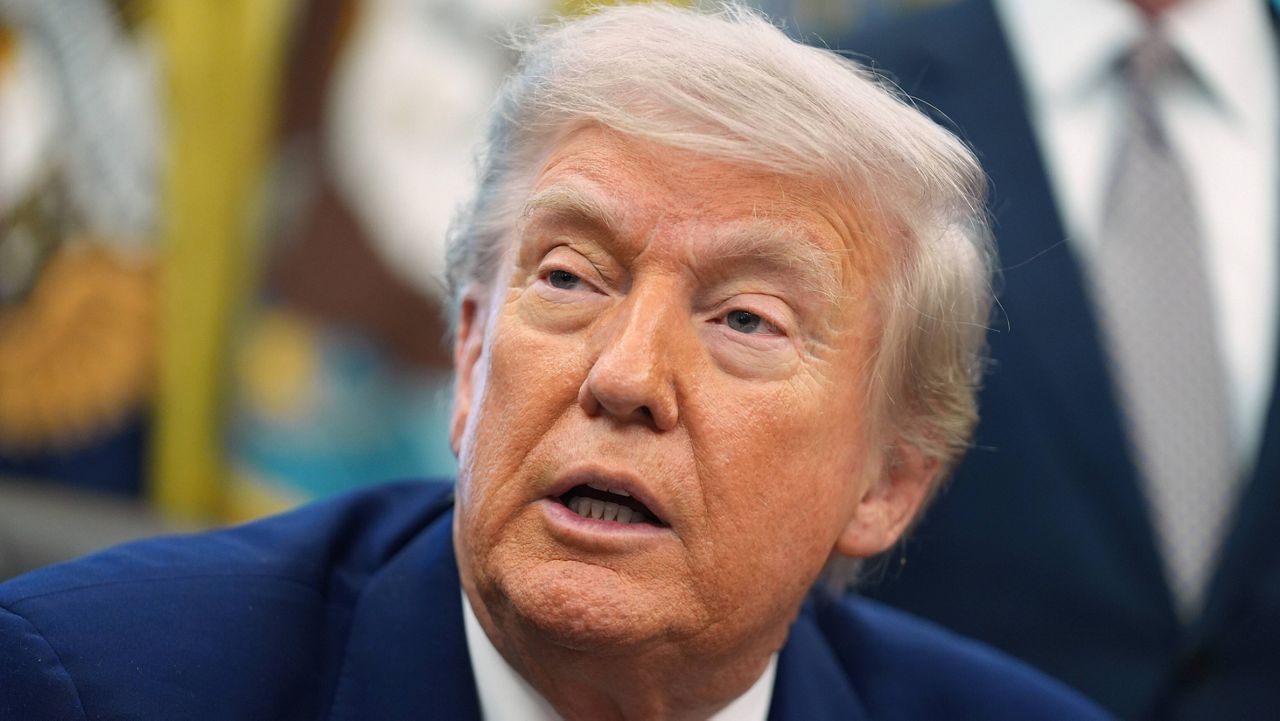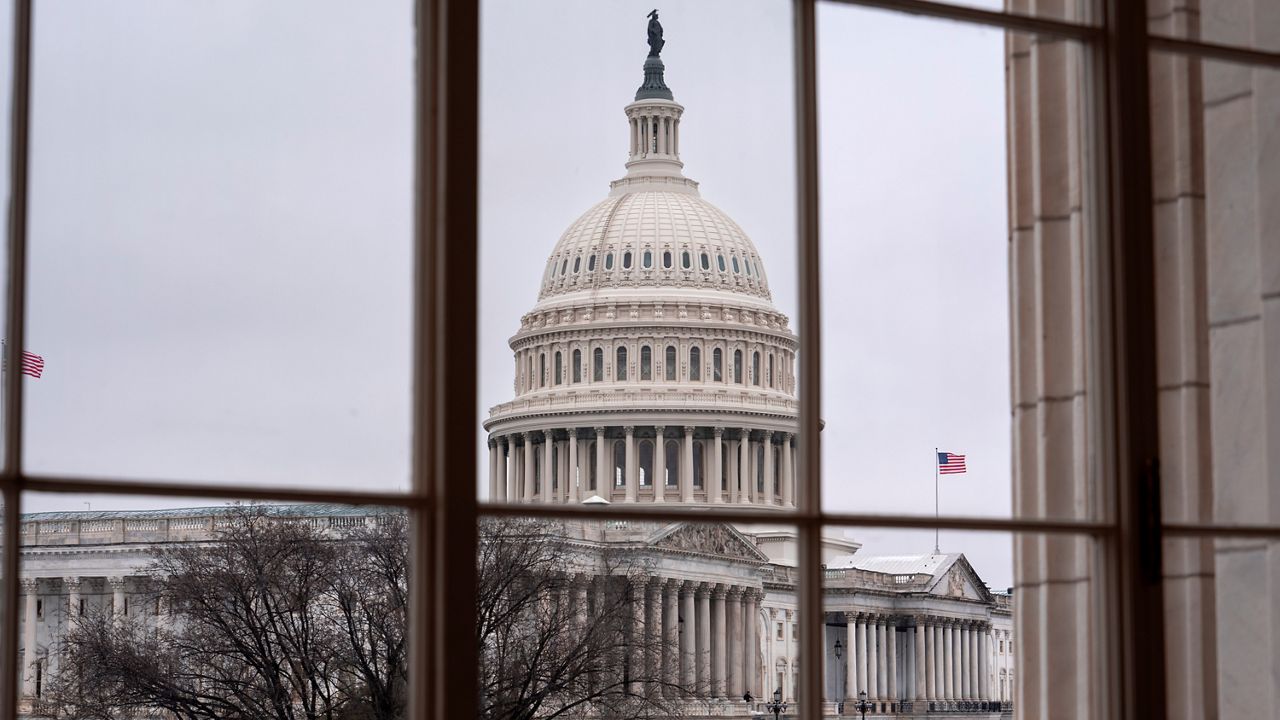WASHINGTON — House Republicans are looking to take the first major step forward in passing President Donald Trump’s agenda through Congress with a vote this week on the budget resolution that would lay the path for final legislation to be crafted.
Despite Trump’s endorsement of the House’s one-bill strategy to advancing his biggest priorities on the border, energy and taxes, GOP leadership in the lower chamber is facing uncertainty as some Republicans express concerns about the resolution.
Speaking at an event hosted by Americans for Prosperity on Monday, Speaker Mike Johnson expressed confidence in the chances of passing the resolution even as he acknowledged that “there may be more than one” member of the House Republican conference that is currently against it.
“We’re going to get everybody there,” he said.
But Johnson’s margin for error is razor-thin as he is managing an ultra-small majority and one GOP House member, Indiana Rep. Victoria Spartz, has already made clear with a post on X over the weekend that she plans to vote no.
Others in the lower chamber are expressing skepticism about the legislation’s potential impact on social safety net programs such as Medicaid and the Supplemental Nutrition Assistance Program, often referred to as SNAP or food stamps, given the areas in which the current resolution calls for spending cuts.
New York Rep. Nicole Malliotakis told Spectrum News on Monday that she is still undecided on her vote, noting she wants more information and specifically to “see the math” on how her party expects to save $880 billion on programs under the House Energy and Commerce Committee, something that could impact Medicaid.
California Rep. David Valadao similarly told Spectrum News earlier this month that the spending cuts proposed to things that fall under the Energy and Commerce and Agriculture Committees’ purviews have him “very concerned” given the possible impact on his constituents.
“The [energy and commerce] part of it, the $880 billion, the focus of those we imagine is going to be something in the healthcare field, and that's one that has us very concerned,” he said. “The [agriculture] side, I assume some of that will be SNAP and some other issues so that's also important in my district.”
Last week, eight House Republicans in the Congressional Hispanic Caucus, including Malliotakis and Valadao, sent a letter to Johnson urging him to ensure that programs that have “empowered Americans to succeed” do not get “caught in the crossfire,” specifically mentioning Medicaid, SNAP and Pell Grants.
Democrats meanwhile are sounding the alarm on the proposal with the party’s leader in the House, Rep. Hakeem Jeffries of New York, telling his caucus in a “Dear Colleague” letter on Monday that it is “imperative that we are present with maximum attendance” at this week’s expected vote to show their opposition.
“We must be at full strength to enhance our opportunity to stop the GOP Tax Scam in its tracks,” the House minority leader wrote, asserting the resolution would end “Medicaid as we know it” and give a tax break to “wealthy Republican donors and well-connected corporations.”
It all comes after the Senate last week cleared the first hurdle in moving forward with its two-bill approach to passing Trump’s agenda through Congress. Republicans in the upper chamber. Senate Republicans passed a plan crafted by Senate Budget Committee Chair Lindsey Graham, R-S.C., to provide more than $300 billion in funding for the border and the Pentagon and address Trump's energy priorities now while saving addressing the president’s tax-cut goals later.
The move put the Senate out in front of the House in a process typically kicked off in the lower chamber and came despite Trump favoring the House’s approach to put border, energy and tax priorities together in one piece of legislation.
Senate Republicans leaders cast the move as a back-up plan if Johnson is unable to move his plan across the finish line. Graham said his plan would be “fully paid for” by finding spending cuts in other programs.
The House approach includes money for the same issues but also includes trillions of dollars in tax cuts and an increase to the debt limit, which is set to be reached early this summer.
The Republican-controlled Congress is looking to pass Trump’s domestic agenda through a somewhat complicated process called budget reconciliation, which would allow legislation to move through the Senate without any Democratic support. But lawmakers are also facing a March 14 deadline to figure out a way to avoid a government shutdown, as they still have not passed a budget for the full fiscal year, which started in October, and have been relying on short-term funding patches.
Spectrum News’ Kevin Frey and Cassie Semyon contributed to this report.











